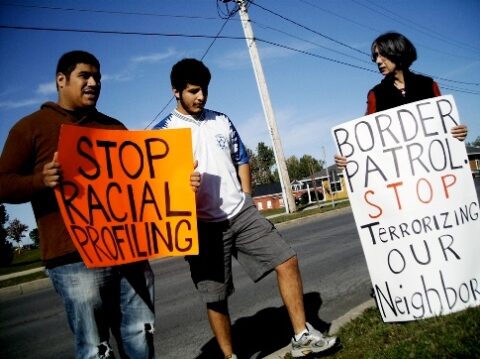(Akiit.com) President-elect Barack Obama has said the African-American church transformed him from a skeptic to a believer.
He has spoken appreciatively of its vibrant worship and written about how the black church experience has moved him to tears. And he has credited African-American congregations for their work in helping the powerless and in speaking truth to power.
But when he officially takes up residence in the White House, will the nation’s first African-American president attend a predominantly African-American church? And, in a larger sense, does it matter if he does or doesn’t?
Some observers think he ultimately may choose a black church, given his previous attraction to the predominantly African-American Trinity United Church of Christ in Chicago, which he made his church home before the fiery sermons of its pastor, Jeremiah Wright, became an embarassment.
Noel Erskine, associate professor at Candler School of Theology in Atlanta, suspects the president-elect is considering another African-American congregation, after his mainly positive experience at Trinity.
Erskine expects black congregations to be part of the Obama family’s search “as a continuation of the family’s experience of church,†including his wife’s and his mother-in-law’s roots in the African Methodist Episcopal Church.
“I feel that they will give as careful a search for church as they gave for the school of the girls,’’ he said.â€Perhaps the compromise will be that since they chose a white school for the girls they will choose a black church (and) Sunday school for them.’’
After the controversy surrounding Wright, University of Chicago Divinity School professor Dwight Hopkins thinks Obama might choose a black congregation that is in some respects milder than Trinity.
“There are various forms of preaching and, of course, African-American preaching has various styles,†said Hopkins, a theology professor who is a member of Trinity. “I could see him and the first family settling in a church in the D.C. area that would have the same liberal and progressive theological bent but the emotive and bodily expression of that element might be more toned down, mild in that sense.â€
Washington has an array of predominantly black churches from which to choose, including Metropolitan African Methodist Episcopal Church, Shiloh Baptist Church and Covenant Baptist Church.
Although Hopkins can imagine Obama attending a black church, he cautioned against making too much about Obama, or his feelings about race, based solely on where he chooses to worship on Sunday mornings.
“It’s clear that he enjoys (the) black church, he enjoys black worship,†he said.
Nick Shapiro, a spokesman for Obama’s transition team, said, “What church Pres-ident-elect Obama chooses is a private decision that he will make.’’
In his autobiographical books, Obama captured the ethos of the African-American church and what he found attractive about it.
“Out of necessity, the black church rarely had the luxury of separating individual salvation from collective salvation,†he wrote in The Audacity of Hope. “It had to serve as the center of the community’s political, economic and social as well as spiritual life; it understood in an intimate way the biblical call to feed the hungry and clothe the naked and challenge powers and principalities.â€
Hearing Wright preach about “the audacity of hope†brought Obama to tears, he wrote in Dreams from My Father.
“Those stories—of survival and freedom and hope—became our story, my story; the blood that had spilled was our blood, the tears our tears,’’ Obama wrote, “until this black church, on this bright day, seemed once more a vessel carrying the story of a people into future generations and into a larger world.â€
Whether Obama chooses a black church or not, his choice will be dissected and analyzed, just as many of his other choices have been and will be, said Eddie S. Glaude Jr., professor of religion and African-American studies at Princeton University.
“No matter what he chooses, where he chooses to attend, his choice is already overdetermined by the legacy, the history of race and religion in the United States,†said Glaude. “It’s like everything with this presidency. It is freighted with symbolic and substantive significance. … It’s just uncharted territory.â€
Written By Adelle M. Banks










Leave a Reply